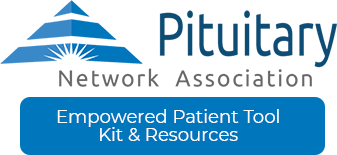
As an American, you have a right to good health care that is effective, accessible, and affordable, that serves you from infancy through old age, that allows you to go to practitioners and facilities of your choosing, and that offers a broad range of therapeutic options.
-Andrew Weil
PNA Spotlight: Dr. John Boockvar
 In June the PNA Spotlight focuses on Dr. John Boockvar, a neurosurgeon in New York City. Dr. Boockvar has many titles; among them, vice chair of the Department of Neurosurgery and director of the Brain Tumor and Pituitary/Neuroendocrine Center at Lenox Hill Hospital; investigator in the Laboratory for Brain Tumor Biology at the Feinstein Institutes for Medical Research; and professor of Neurosurgery and Otolaryngology/Head and Neck Surgery at the Donald and Barbara Zucker School of Medicine at Hofstra/Northwell. He also serves as an adjunct professor at Cold Spring Harbor Laboratory and is head of experimental therapeutics for Northwell Health. Dr. Boockvar received a BA from the University of Pennsylvania and and MD from SUNY Brooklyn-Downstate Medical Center. He did his surgical internship and neurosurgical residency at the Hospital of the University of Pennsylvania. Dr. Boockvar did his NIH-supported postdoctoral research training in neuro-oncology at the University of Pennsylvania Cancer Center. He was kind enough to answer a series of questions from the PNA. His answers follow:
In June the PNA Spotlight focuses on Dr. John Boockvar, a neurosurgeon in New York City. Dr. Boockvar has many titles; among them, vice chair of the Department of Neurosurgery and director of the Brain Tumor and Pituitary/Neuroendocrine Center at Lenox Hill Hospital; investigator in the Laboratory for Brain Tumor Biology at the Feinstein Institutes for Medical Research; and professor of Neurosurgery and Otolaryngology/Head and Neck Surgery at the Donald and Barbara Zucker School of Medicine at Hofstra/Northwell. He also serves as an adjunct professor at Cold Spring Harbor Laboratory and is head of experimental therapeutics for Northwell Health. Dr. Boockvar received a BA from the University of Pennsylvania and and MD from SUNY Brooklyn-Downstate Medical Center. He did his surgical internship and neurosurgical residency at the Hospital of the University of Pennsylvania. Dr. Boockvar did his NIH-supported postdoctoral research training in neuro-oncology at the University of Pennsylvania Cancer Center. He was kind enough to answer a series of questions from the PNA. His answers follow:
PNA Medical Corner: PitNETs
 This month the PNA Medical Corner showcases a study co-authored by longtime PNA member Dr. Sylvia Asa on PitNets that co-express PIT1 and SF1. These types of tumors that express both are rare. Read more here:
This month the PNA Medical Corner showcases a study co-authored by longtime PNA member Dr. Sylvia Asa on PitNets that co-express PIT1 and SF1. These types of tumors that express both are rare. Read more here:
https://pubmed.ncbi.nlm.nih.gov/37268858/
Abstract
PitNETs are usually restricted in their cytodifferentiation to only one of 3 lineages dictated by expression of the pituitary transcription factors (TFs) PIT1, TPIT, or SF1. Tumors that show lineage infidelity and express multiple TFs are rare. We searched the pathology files of 4 institutions for PitNETs with coexpression of PIT1 and SF1. We identified 38 tumors in 21 women and 17 men, average age 53 (range 21-79) years. They represented 1.3 to 2.5% of PitNETs at each center. Acromegaly was the presentation in 26 patients; 2 had central hyperthyroidism associated with growth hormone (GH) excess and one had significantly elevated prolactin (PRL). The remainder had mass lesions with visual deficits, hypopituitarism, and/or headaches. Tumor size ranged from 0.9 to 5 cm; all 7 lesions smaller than 1 cm were associated with acromegaly. Larger lesions frequently invaded the cavernous sinuses.
Copyright © 2024 Pituitary Network Association All rights reserved.
Disclaimer: PNA does not engage in the practice of medicine. It is not a medical authority, nor does it claim to have medical expertise. In all cases, PNA recommends that you consult your own physician regarding any course of treatment or medication.
Our mailing address is:
Pituitary Network Association
P.O. Box 1958
Thousand Oaks, CA 91358
(805) 499-9973 Phone - (805) 480-0633 Fax
Email info@pituitary.org
You are receiving this Newsletter because you have shown interest in receiving information about our activities.
If you do not want to receive any more emails from PNA, Unsubscribe.










